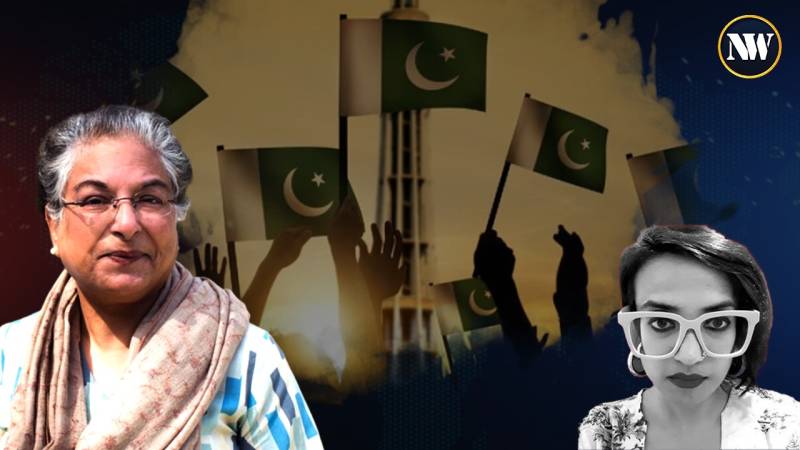Hina Jilani, an esteemed human rights activist and Chairperson of the Human Rights Commission of Pakistan, sheds light on an often-overlooked aspect - the vulnerability of democracy stemming from the societal mindset. In her recent discussion, Jilani delves into the complexities and dynamics that have shaped Pakistan's democratic landscape, emphasizing the role of not only political leadership and the military but also the mindset of the people.
Jilani's assertion that Pakistan's democracy has always been vulnerable might seem bleak, but it underscores a vital reality. The evolution of democracy has been deeply influenced by shifting political dynamics, the military's role, and society's values. The vulnerability she refers to transcends the political arena, weaving into the fabric of society itself.
Jilani accentuates the significance of strong democratic institutions such as the parliament and the judiciary. These institutions play a critical role in safeguarding democracy, ensuring checks and balances, and preventing any one entity from gaining unchecked power. The parliament's performance, however, has often fallen short, reflecting a lack of cohesion and strategic vision among political parties. Jilani laments the inability of political leaders to effectively counterbalance the military's influence, citing a missed opportunity to protect civilian supremacy.
The transformation of Pakistan's political landscape from a hybrid regime to another form of hybrid rule is a central point of concern. Jilani articulates how successive governments, including the PTI-led one, have displayed an inclination towards using the military as a tool, rather than working to ensure the military's subservience to civilian authority. This shift in dynamics has raised alarms about the erosion of democratic values and the potential for increased military influence.
While external factors undoubtedly impact the course of democracy, Jilani's assertion that societal mindset influences democracy's fate is particularly insightful. Democracy's success hinges on a populace that values democratic principles, engages in informed political discourse, and actively participates in the democratic process. The failure to nurture this mindset can lead to indifference, allowing undemocratic forces to gain ground. The challenge lies in promoting a culture of informed citizenship that actively resists misinformation and propaganda.
Jilani points out the need for astute leadership capable of strategizing beyond immediate gains. The 2018 coalition government was initially seen as an opportunity for strengthening civilian authority. Unfortunately, this government quickly devolved into a mode where military influence was sought, rather than challenged. Jilani emphasizes that instead of relying on the military to resolve political issues, politicians must develop strategies to address challenges through political means. Astute leadership is essential for maintaining the balance of power between civilian institutions and the military.
Civil society emerges as a significant player in mitigating the challenges faced by democracy. When political parties falter, civil society can fill the void by advocating for democratic values, raising awareness, and holding those in power accountable. In an era of digital misinformation, Jilani underscores the importance of civil society in combating propaganda and promoting informed discourse. Civil society must harness its collective influence to reshape the public mindset, instill democratic values, and drive meaningful change.
Amid the discussion on democracy, Jilani addresses the recent IMF bailout package. While acknowledging its economic importance for Pakistan's stability, she highlights that economic measures alone cannot alleviate the broader issues concerning democracy and civil rights. The economic situation can impact the political landscape, and vice versa. The challenge lies in ensuring that economic stabilization does not compromise the democratic fabric of the nation.

